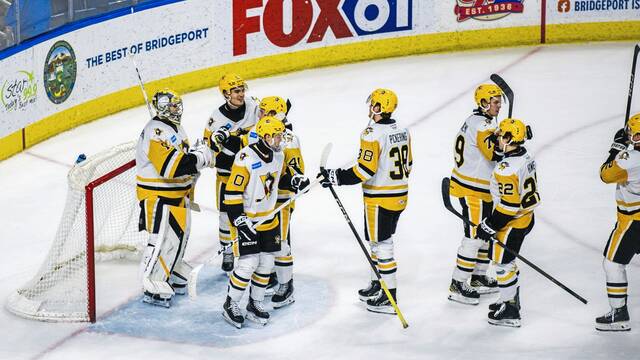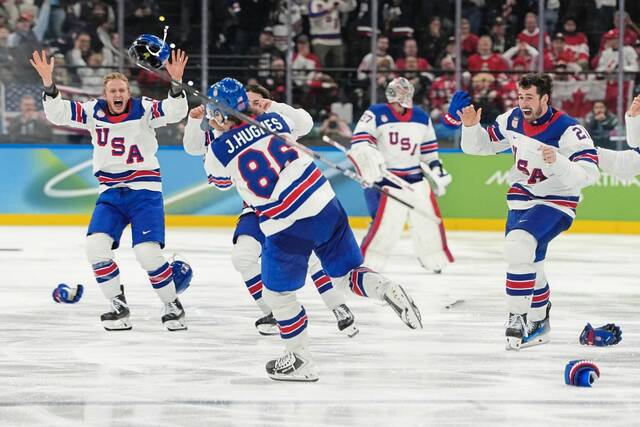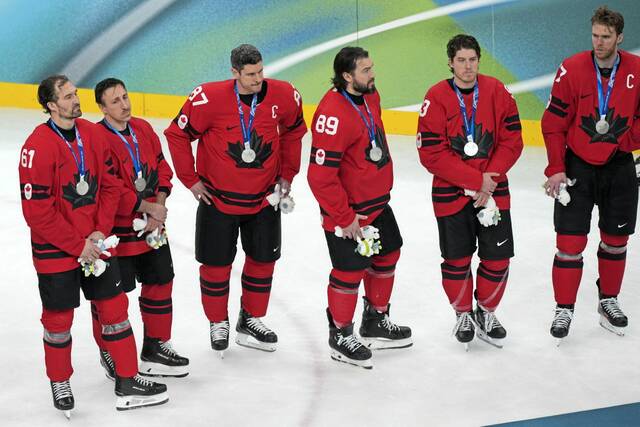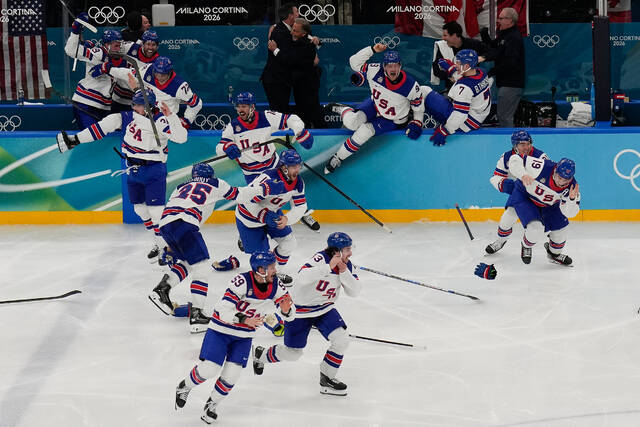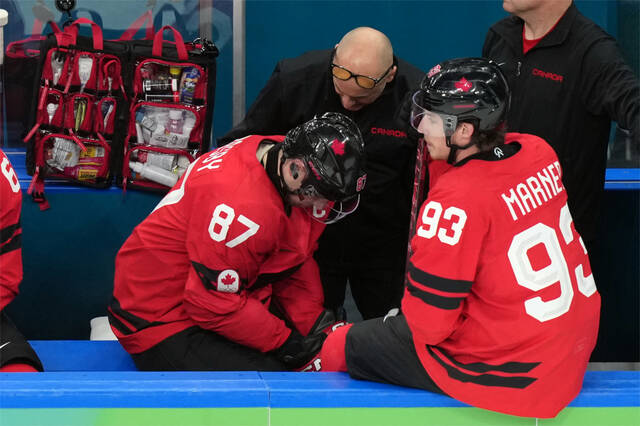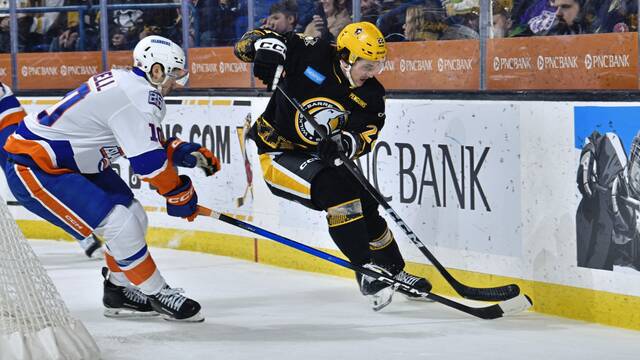The Pittsburgh Penguins have lost 87 man games to injury this season.
And it’s possible the cluster of games lost that have impacted them the most are the seven contests fourth-line center Noel Acciari missed earlier this month.
If nothing else, his absence can be tabulated in a fashion that stands out in a way far greater than any of his fellow convalescent teammates can offer: 17% (almost).
That’s how much of a difference Acciari has made on the penalty kill this season.
In the seven games Acciari missed between Dec. 2-16, the Penguins’ penalty kill clunked along at a 70.3% success rate, going 19 for 27.
With him, it has efficiently operated at 87.0%, killing 68 of 77 opposing power-play opportunities.
And since he rejoined the lineup Dec. 18, the Penguins are perfect on the penalty kill, going 9 for 9.
“He’s always been a really good (penalty killer),” said defenseman Chad Ruhwedel, a fellow penalty killer who also rejoined the lineup Dec. 9 after an injury. “Blocking shots, good with his stick, hard on pucks. He’s always been throughout his career, and it’s shown with us, too.”
This past offseason, the Penguins sought to beef up their bottom-six forwards — a group that typically is affixed to penalty-killing duties — and one of their more prominent additions to that group was Acciari, who was signed to a somewhat lengthy three-year contract (with a modified no-trade clause) that was worth $3 million.
While his offerings at five-on-five play have been limited to three points (two goals, one assist), his prowess on the penalty kill is obvious.
In addition to leading the team’s forwards with 2 minutes, 31 seconds of short-handed ice time per game this season, Acciari is the team leader with 75 short-handed faceoffs this season. The right-handed Acciari has won 52% of those draws (39 of 75).
“I’m sure he has an impact on that number without a doubt because he’s one of our better penalty killers,” Penguins coach Mike Sullivan said. “He also wins a lot of faceoffs for us, which is an important aspect of killing penalties. Especially if you can win that opening faceoff and get a 200-foot clear, you’ve got a chance to potentially kill 20-plus seconds. Then the opposing power play has got to expend energy going back for the puck and gain access to your zone.
“He helps us in a lot of areas. … Without a doubt, he has an impact on that. We know we’re a better penalty kill when he’s in our lineup.”
Undrafted out of Providence College, Acciari has carved out a nine-year career largely based on what he can do as a penalty killer.
“I take a lot of pride in not getting scored on,” Acciari said. “You get put out there, and the coaches put trust in you. You don’t want to disappoint. You do everything you can, either block a shot or get a clear. That goes for anyone on the (penalty kill) if you get the trust of the coach to keep the puck out of the net.”
In addition to their bottom-six forwards, the Penguins largely overhauled the vast majority of their penalty kill this past summer. Forwards Lars Eller, Matt Nieto, Reilly Smith and defenseman Ryan Graves are also newcomers to the group.
For Acciari, the Penguins’ method of penalty killing is different than his previous stops with the Boston Bruins, Florida Panthers, St. Louis Blues and Toronto Maple Leafs.
“For me as a forward, it’s the way the movement is up top, assignments for each forward,” Acciari said. “I found it different for me, just something that I haven’t done. Took a little while to get used to, but I think I’ve got the hang of it now and I feel really comfortable with it.
“The system is a little different for me. It’s something that I haven’t done, but I think it’s very effective once everyone is on the same page.”
Acciari’s effectiveness has been quite apparent.
“He really sets the tone, I think, for our kill,” Penguins defenseman Marcus Pettersson said. “He’s great in the faceoff circle. He wins a lot of draws for us and that way, we can get clears and maybe not spend as much time in our zone. He’s a great faceoff man. You can see in practice, he (vexes) the power-play guys. … He’s a pest to them.
“It really shows when he’s out of the lineup how valuable he is to us.”



